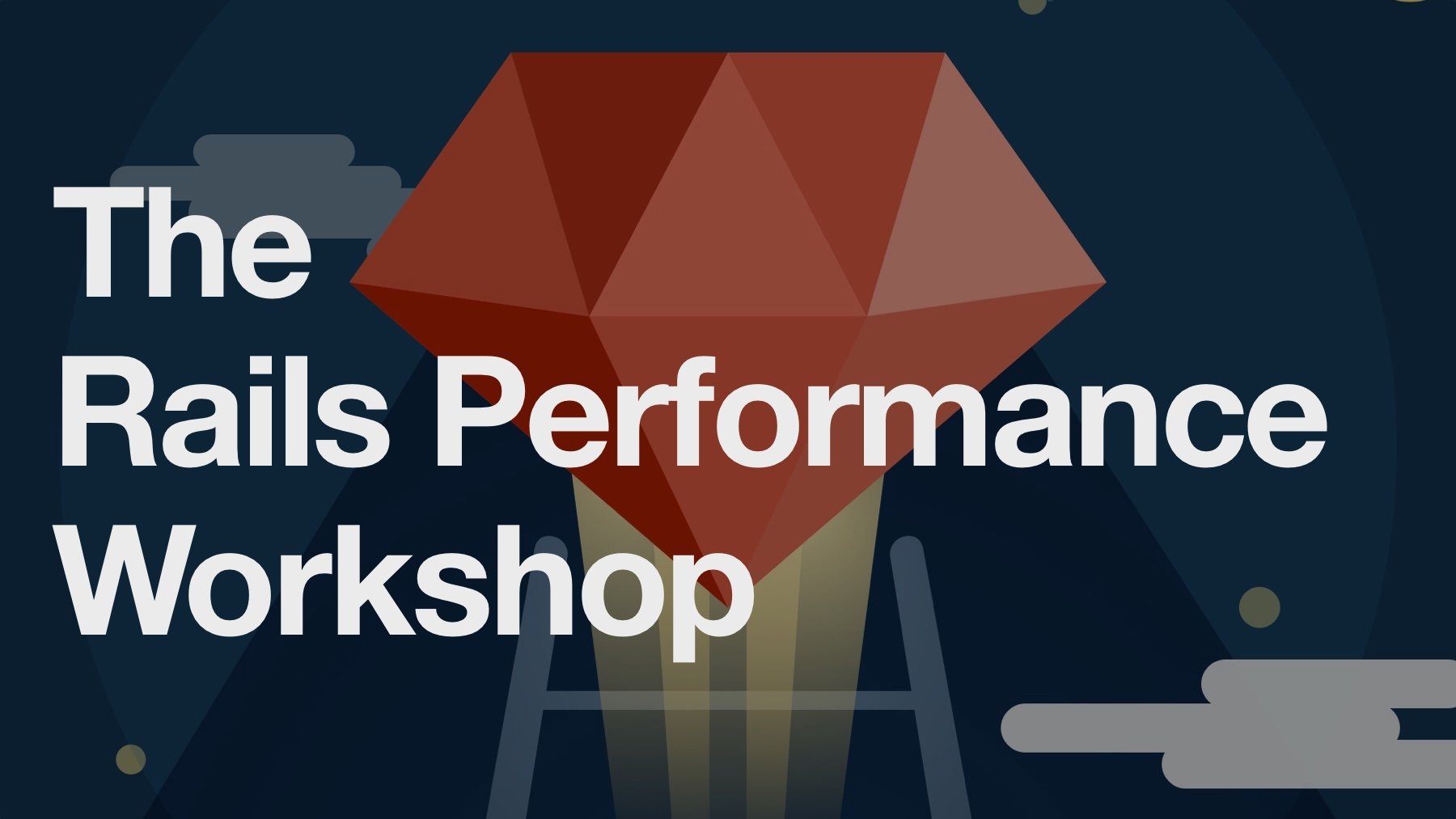The #1 Rails performance blog on the web. (what's Speedshop?)
Announcing the Rails Performance Apocrypha
I've written a new book, compiled from 4 years of my email newsletter.
We Made Puma Faster With Sleep Sort
Puma 5 is a huge major release for the project. It brings several new experimental performance features, along with tons of bugfixes and features. Let's talk about some of the most important ones.
The Practical Effects of the GVL on Scaling in Ruby
MRI Ruby's Global VM Lock: frequently mislabeled, misunderstood and maligned. Does the GVL mean that Ruby has no concurrency story or CaN'T sCaLe? To understand completely, we have to dig through Ruby's Virtual Machine, queueing theory and Amdahl's Law. Sounds simple, right?
The World Follows Power Laws: Why Premature Optimization is Bad
Programmers vaguely realize that 'premature optimization is bad'. But what is premature optimization? I'll argue that any optimization that does not come from observed measurement, usually in production, is premature, and that this fact stems from natural facts about our world. By applying an empirical mindset to performance, we can...
Why Your Rails App is Slow: Lessons Learned from 3000+ Hours of Teaching
I've taught over 200 people at live workshops, worked with dozens of clients, and thousands of readers to make their Rails apps faster. What have I learned about performance work and Rails in the process? What makes apps slow? How do we make them faster?
3 ActiveRecord Mistakes That Slow Down Rails Apps: Count, Where and Present
Many Rails developers don't understand what causes ActiveRecord to actually execute a SQL query. Let's look at three common cases: misuse of the count method, using where to select subsets, and the present? predicate. You may be causing extra queries and N+1s through the abuse of these three methods.
The Complete Guide to Rails Performance, Version 2
I've completed the 'second edition' of my course, the CGRP. What's changed since I released the course two years ago? Where do I see Rails going in the future?
A New Ruby Application Server: NGINX Unit
NGINX Inc. has just released Ruby support for their new multi-language application server, NGINX Unit. What does this mean for Ruby web applications? Should you be paying attention to NGINX Unit?
Malloc Can Double Multi-threaded Ruby Program Memory Usage
Memory fragmentation is difficult to measure and diagnose, but it can also sometimes be very easy to fix. Let's look at one source of memory fragmentation in multi-threaded CRuby programs: malloc's per-thread memory arenas.
Configuring Puma, Unicorn and Passenger for Maximum Efficiency
Application server configuration can make a major impact on the throughput and performance-per-dollar of your Ruby web application. Let's talk about the most important settings.
Is Ruby Too Slow For Web-Scale?
Choosing a new web framework or programming language for the web and wondering which to pick? Should performance enter your decision, or not?
Railsconf 2017: The Performance Update
Did you miss Railsconf 2017? Or maybe you went, but wonder if you missed something on the performance front? Let me fill you in!
Understanding Ruby GC through GC.stat
Have you ever wondered how the heck Ruby's GC works? Let's see what we can learn by reading some of the statistics it provides us in the GC.stat hash.
Rubyconf 2016: The Performance Update
What happened at RubyConf 2016 this year? A heck of a lot of stuff related to Ruby performance, that's what.
What HTTP/2 Means for Ruby Developers
Full HTTP/2 support for Ruby web frameworks is a long way off - but that doesn't mean you can't benefit from HTTP/2 today!
How Changing WebFonts Made Rubygems.org 10x Faster
WebFonts are awesome and here to stay. However, if used improperly, they can also impose a huge performance penalty. In this post, I explain how Rubygems.org painted 10x faster just by making a few changes to its WebFonts.
Page Weight Doesn't Matter
The total size of a webpage, measured in bytes, has little to do with its load time. Instead, increase network utilization: make your site preloader-friendly, minimize parser blocking, and start downloading resources ASAP with Resource Hints.
Hacking Your Webpage's Head Tags for Speed and Profit
One of the most important parts of any webpage's performance is the content and organization of the head element. We'll take a deep dive on some easy optimizations that can be applied to any site.
How to Measure Ruby App Performance with New Relic
New Relic is a great tool for getting the overview of the performance bottlenecks of a Ruby application. But it's pretty extensive - where do you start? What's the most important part to pay attention to?
Ludicrously Fast Page Loads - A Guide for Full-Stack Devs
Your website is slow, but the backend is fast. How do you diagnose performance issues on the frontend of your site? We'll discuss everything involved in constructing a webpage and how to profile it at sub-millisecond resolution with Chrome Timeline, Google's flamegraph-for-the-browser.
Action Cable - Friend or Foe?
Action Cable will be one of the main features of Rails 5, to be released sometime this winter. But what can Action Cable do for Rails developers? Are WebSockets really as useful as everyone says?
rack-mini-profiler - the Secret Weapon of Ruby and Rails Speed
rack-mini-profiler is a powerful Swiss army knife for Rack app performance. Measure SQL queries, memory allocation and CPU time.
Scaling Ruby Apps to 1000 Requests per Minute - A Beginner's Guide
Most "scaling" resources for Ruby apps are written by companies with hundreds of requests per second. What about scaling for the rest of us?
Make your Ruby or Rails App Faster on Heroku
Ruby apps in the memory-restrictive and randomly-routed Heroku environment don't have to be slow. Achieve <100ms server response times with the tips laid out below.
The Complete Guide to Rails Caching
Caching in a Rails app is a little bit like that one friend you sometimes have around for dinner, but should really have around more often.
How To Use Turbolinks to Make Fast Rails Apps
Is Rails dead? Can the old Ruby web framework no longer keep up in this age of "native-like" performance? Turbolinks provides one solution.
Products from Speedshop
The Complete Guide to Rails Performance is a full-stack performance book that gives you the tools to make Ruby on Rails applications faster, more scalable, and simpler to maintain.
Learn more
The Rails Performance Workshop is the big brother to my book. Learn step-by-step how to make your Rails app as fast as possible through a comprehensive video and hands-on workshop. Available for individuals, groups and large teams.
Learn more
Want a faster website?
I'm Nate Berkopec (@nateberkopec). I write online about web performance from a full-stack developer's perspective. I primarily write about frontend performance and Ruby backends. If you liked this article and want to hear about the next one, click below. I don't spam - you'll receive about 1 email per week. It's all low-key, straight from me.